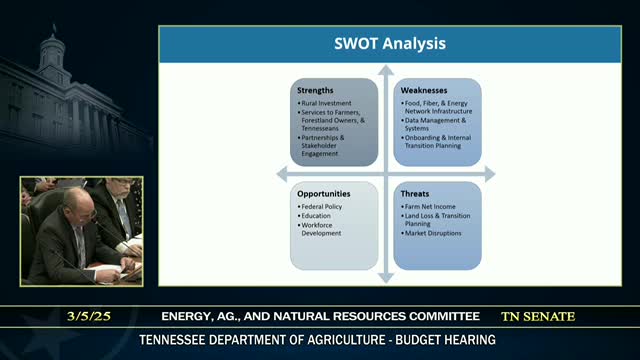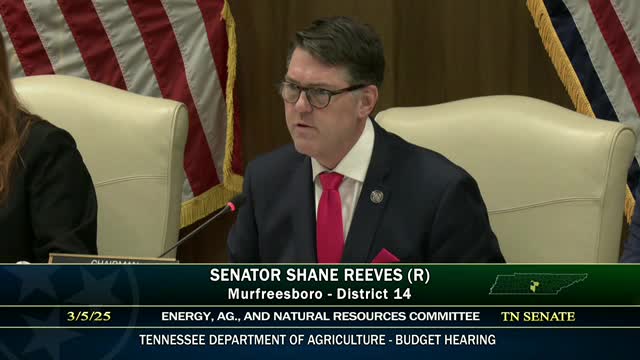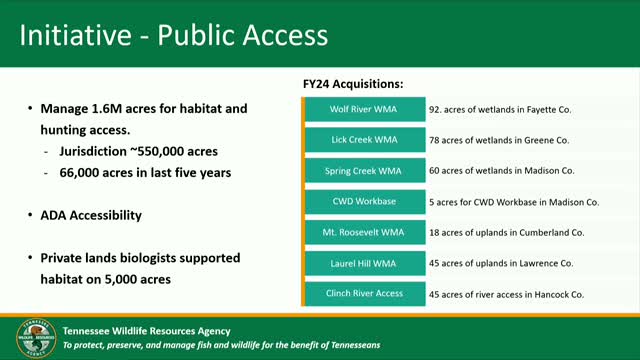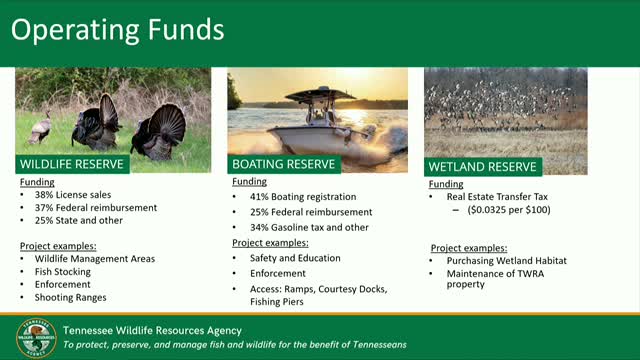Article not found
This article is no longer available. But don't worry—we've gathered other articles that discuss the same topic.

TWRA seeks $30M one-time appropriation, continuation of invasive-species and disease positions; committee advances budget 9-0

Tennessee agriculture commissioner outlines $15M enterprise fund, $25M farmland conservation proposal in budget hearing

Senate committee confirms four appointees to Tennessee Fish and Wildlife Commission

